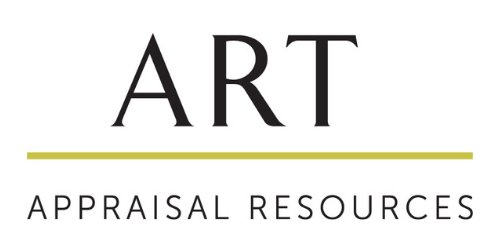How To Determine If You Need An Art Appraisal
/Value matters and an art appraisal completed by a qualified art appraiser can save you substantial money by not selling too low, insuring too low, or paying too much in estate tax or equitable distribution. A pre-purchase appraisal can also help to understand the accurate market for the work and what is an appropriate amount of money to spend.
Appraisals are crucial in the art market, providing essential information about artworks' value, authenticity, and condition. Whether you are a seasoned collector, an art enthusiast, or someone looking to sell or insure a piece of art, understanding when to seek an art appraisal is essential. In this article, we will explore the key indicators that suggest you may need an art appraisal.
1. Artwork Ownership and Acquisition:
If you have recently acquired or inherited a piece of art, it can be beneficial to determine its value through an appraisal. Understanding the artwork's potential worth allows you to make informed decisions regarding its conservation, insurance, sale, or donation. Appraisals can also assist in establishing provenance, which can significantly impact the value of the artwork.
2. Insurance Purposes:
Artwork can be a valuable asset, and it is essential to ensure that it is adequately insured. Many insurance companies require a professional art appraisal to determine the appropriate coverage and premiums. An appraisal helps establish the artwork's current market value and ensures that you have the necessary documentation in case of loss, theft, or damage.
You should check with your insurance provider to see what is and is not covered by your homeowners or rental insurance policy. Some insurance companies include a blanket amount for artwork, and some require an independent appraisal (not done by the gallery or artist that sold you the art) for all items over $1200, $2500, or $5000. Each insurance carrier has a different policy and requirements, so it is always a good idea to check with them first. Many insurance companies also require an updated appraisal if the one you have was done too many years ago. The International Society of Appraisers recommends an updated appraisal every 2-3 years, but every five years is sufficient.
3. Artwork Sale or Acquisition:
If you are considering selling or buying a piece of art, an appraisal can provide valuable insights. For sellers, an appraisal helps determine an appropriate asking price and allows you to negotiate with potential buyers confidently. On the other hand, buyers can benefit from an assessment to ensure they pay a fair price for the artwork's value.
You do not need a formal written appraisal to sell most fine art. Still, if you have something of value, you will benefit from an impartial assessment of fair market value so that you do not sell something too low to donate something of high value you did not intend to. It is also helpful to obtain an independent assessment since, many times; the family may think a particular painting is a very high value based on: purchase price, asking prices on online platforms, stories and marketing of the artist, etc. An impartial valuation can eliminate a lot of conflict with family members so they know what they have and can sell in the most appropriate marketplace.
4. Artwork Donation:
Donating artwork to museums, galleries, or charitable organizations often requires an appraisal for tax purposes. The appraisal establishes the artwork's fair market value, which is crucial for claiming deductions on charitable donations.
The IRS Requires a formal written appraisal by a Qualified Art Appraiser for any fine art donated with a value over $5000. This critical step will help safeguard the donor to determine an accurate, fair market value. Items donated for $20,000 or more require large high-resolution photographs and a detailed specific format for the item and report.
A qualified art appraiser can help streamline the donation process which is often required by museums before accepting the gift.
5. Artwork Authentication and Verification:
Authenticity becomes crucial when dealing with artworks of historical significance or renowned artists. An art appraisal by a qualified appraiser can help determine if the artwork is genuine, assuring potential buyers, collectors, and institutions.
Appraisers are not authenticators, but a fine art appraiser is an expert in their particular period and will know ways to determine a recent reproduction and do their due diligence to match signatures, styles, etc. Appraisers can help determine if the art needs to be officially authenticated and help you navigate that market to work with the accepted expert on the particular artist. It is estimated that 50% of the art in the market is fake.
6. Estate Planning and Probate:
Including art in estate planning is common, especially if you possess valuable artwork. An art appraisal facilitates the fair distribution of assets, prevents disputes among beneficiaries, and ensures that taxes and other legal requirements are met. During probate, an appraisal comprehensively evaluates the artwork's worth, simplifying the process. If a family member has a taxable estate for estate taxes, an art appraisal is required to document the value of the appreciable art.
7. Curiosity and Documentation:
Sometimes, obtaining an art appraisal is driven by personal curiosity. Understanding a beloved artwork's value and historical significance can enhance appreciation and knowledge. Moreover, appraisals serve as valuable documentation that provides a detailed description and assessment of the artwork, including its condition and provenance.
Art appraisals serve various purposes and are essential in determining artworks' value, authenticity, and condition. Whether you are a collector, seller, buyer, or looking to safeguard and understand the worth of artwork, seeking a professional art appraisal is highly recommended. Appraisals provide valuable insights, aid decision-making, and ensure you have the necessary documentation for insurance, sale, donation, or estate planning purposes. Consulting with a qualified and experienced art appraiser will help you navigate the complexities of the art market and make informed choices regarding your artwork.
